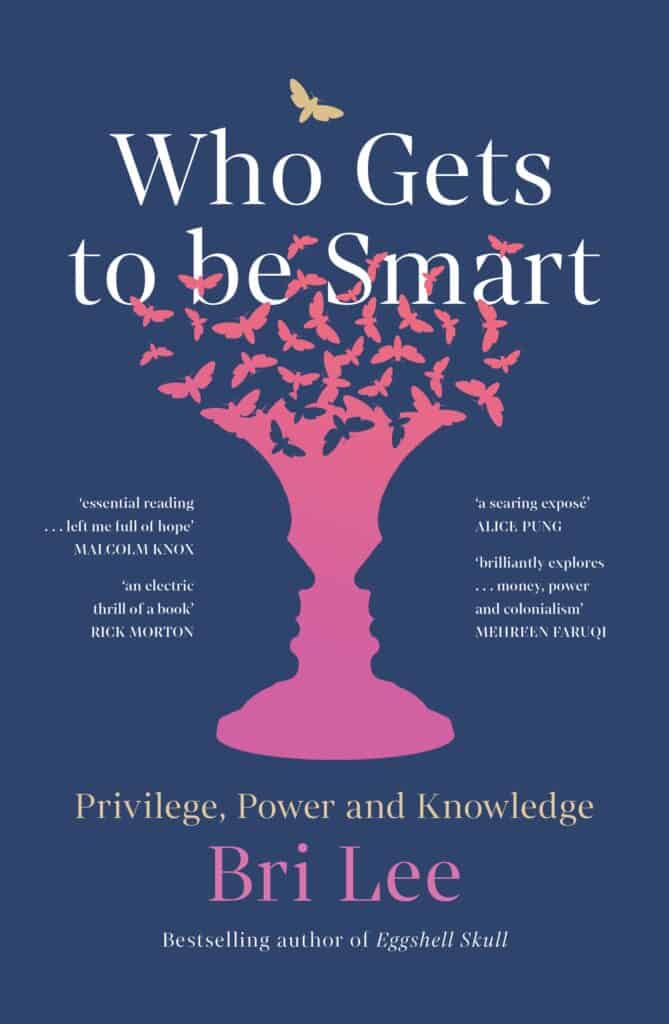‘What does the future look like if only the very rich people can afford to control the intellectual destiny of their child? I’d say it looks a lot like contemporary Australia.’ Bri Lee’s new book follows the money in her third book ‘Who Gets to be Smart: Privilege, Power and Knowledge’.
Lee’s analysis of structural inequality starts at the top when she visits her friend Damian who is a Rhodes scholar, and leads us to the likely dead ends faced by Australia’s regional school students.
It’s an impassioned book, fuelled by the get up and go of a young person who’s pulled at the thread of injustice and finds the tapestry unravel at breakneck pace.

The detailed chapters consider ‘baked-in’ discrimination as she catalogues the ways in which power operates by exclusion, and how things are made special by virtue of their exclusivity. In her examination of ‘being smart’ and how intelligence is defined she refers to kyriarchy (social structures based on domination and coercion), colonisation, science and its misuse, language, gender inequality, and institutions such as Oxford, the Centre for Independent Studies, the Ramsay Centre for Western Civilisation and all the actors on this stage from historical figures, academics, Liberal and Labour politicians and our major universities. Lee is infuriated at the disparity between Australian public and private education funding and quality, and being privately educated herself, her verdict is, ‘a parent feels a duty to put their child above others; the state has a duty to treat all children equally.’
Lee’s awakening to kyriarchy changes her perspective, and while she doesn’t offer a solution to a complex and longstanding issue the author itemises how we got here.

Ultimately she concludes it is important to remember that ‘Knowledge is power, and when powerful people are allowed to shape knowledge and restrict access to knowledge, they are able to consolidate and strengthen their hold on that power.’
Bri Lee’s New Book Is Well Worth Reading
While the author doesn’t cover all ground, the facts land and the interconnectedness between them is reconciled. It is a very busy book, sometimes multidirectional, but such is the issue at hand. You get the sense that Lee is on a liberating journey of discovery, and for the uninitiated it’s a great introduction to ‘who gets to be smart’ and for the rest a chance to reprise the energy for a revolution.
If her audience is largely young people who are coming of age, this is an excellent opportunity for them to learn about the system they are about to either participate in, or be excluded from.
Get your copy of ‘Who Gets to be Smart’ here, and if you buy via this link we will receive a small commission.